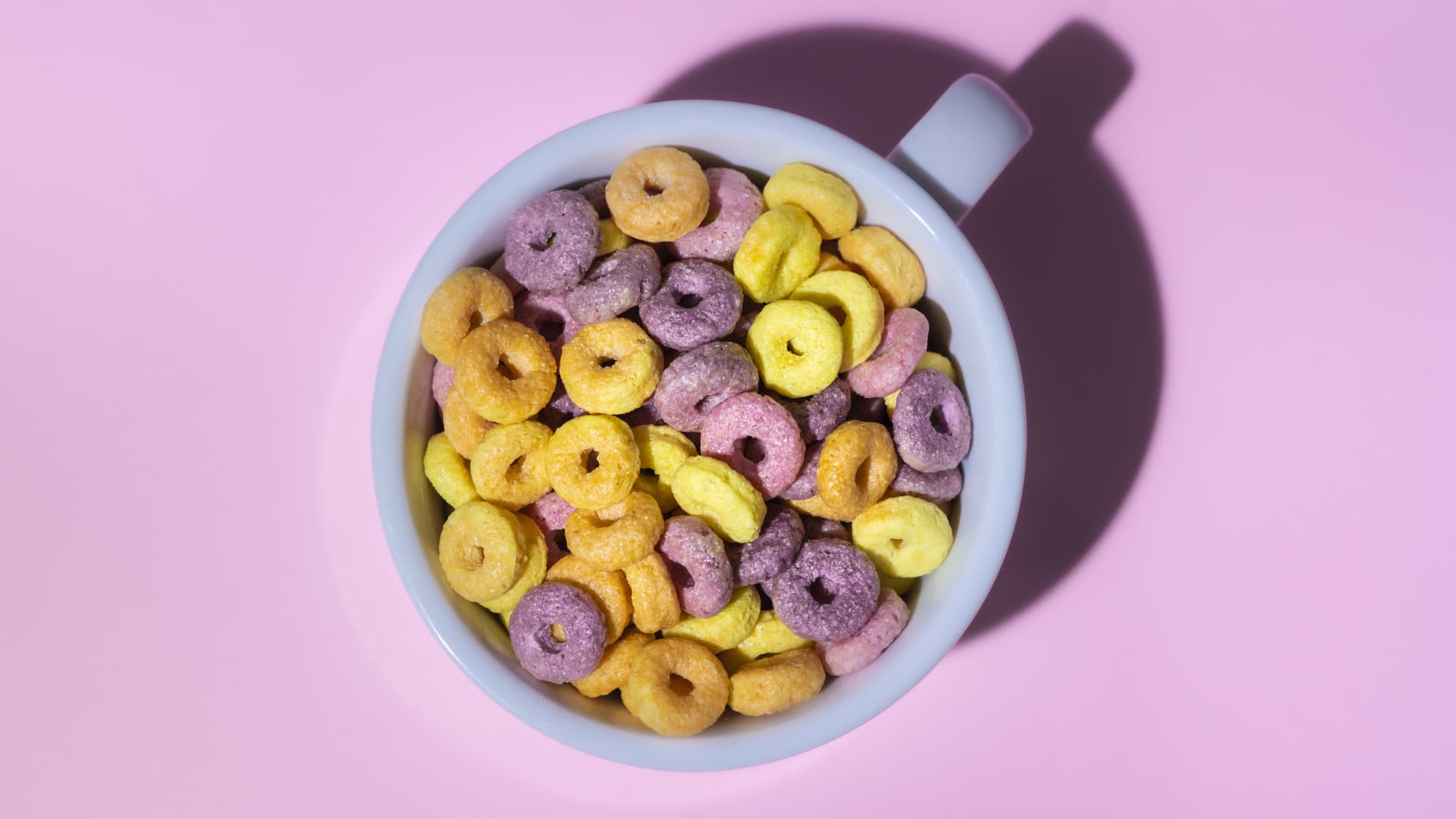Ultra-processed foods make up more than half of the caloric intake of the American diet, and health experts continue to urge us all to cut back.
Consuming high amounts of these foods that are typically high in sodium and saturated fat has been linked to chronic health conditions like cardiovascular disease, obesity and colorectal cancer.
“Ultra-processed foods contain ingredients that we generally wouldn’t find in our kitchen, and they often contain high amounts of sugar and salt,” said Jinan Banna, a registered dietitian and professor of nutrition at the University of Hawaii.
“They may also contain additives, and often are stripped of their nutritional values,” Banna told CNBC Make It in 2024. “So they may have very little vitamins and minerals [and] fiber.”
Chips, donuts, processed meats like hot dogs, and even some plant-based milks are all examples of ultra-processed foods. And nutrition experts like Banna and Harvard-trained nutritional psychiatrist Dr. Uma Naidoo typically avoid them.
The ultra-processed foods these nutrition experts never buy
1. Instant soup
“I generally do not consume instant soup at all,” Banna said. “It’s not something that I buy.”
Typically, instant soups, which contain noodles and flavoring packs, are high in saturated fat and sodium. Their lack of fiber also make them a less nutritious choice.
Banna says you can swap it for canned soups that have a low-sodium content, but the best alternative is to make your own soup at home. Make sure it’s packed with nutrient-rich veggies and even some beans to get in a good bit of fiber.
2. Soda
As for beverages, Banna says she never reaches for a soda.
“Soda doesn’t have any nutritional value other than just calories in the form of sugar,” she said. “They’re empty calories, which don’t give us any of the nutrients that we need.”
Drinking soda can also lead to cravings, since it digests quickly and can make you feel hungry.
Banna usually opts for tea or water, still or sparkling. “Sometimes I drink a cold hibiscus tea. Plain water, of course, is a great alternative,” she said.
“Even coffee can be an option, of course, consumed in moderation.”
3. Sugary breakfast cereals
Cereals like Frosted Flakes and Fruit Loops are some of the most consumed ultra-processed foods, Naidoo said.
“Breakfast cereals tend to be mostly simple carbohydrates with almost an entire day’s worth of added sugars,” she wrote for CNBC Make It last year.
“Consuming this as the first meal of the day can lead to blood sugar spikes that leave us hungry just a few hours later and more inclined to reach for a sugary snack between meals.”
Naidoo doesn’t eat them and says the best breakfast is one that is high in nutrients and has a balance of fats, proteins and carbohydrates.
She typically starts her day with “brain-healthy breakfasts” like:
- An egg scramble with vegetables like tomatoes, avocado and spinach
- Homemade chia seed pudding with blueberries and walnuts
- A green smoothie with leafy greens, nut butter and a clean protein powder — if you’re in a hurry
“A balanced breakfast with these components will power your body and mind through the morning and support healthy food choices later in the day,” she said.
Want to up your AI skills and be more productive? Take CNBC’s new online course How to Use AI to Be More Successful at Work. Expert instructors will teach you how to get started, practical uses, tips for effective prompt-writing, and mistakes to avoid. Sign up now and use coupon code EARLYBIRD for an introductory discount of 30% off $67 (+ taxes and fees) through February 11, 2025.
Plus, sign up for CNBC Make It’s newsletter to get tips and tricks for success at work, with money and in life.











